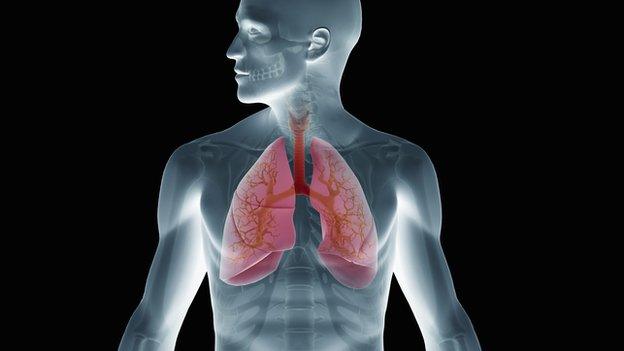Lack of funding for rare lung disease 'costs lives'
- Published

An incurable lung disease is claiming lives because of a lack of funding and research, according to a charity.
The British Lung Foundation, external says IPF (idiopathic pulmonary fibrosis) kills about 5,000 people a year, and is on the rise, but there is low awareness of the condition.
In 2013 the government invested only £600,000 in research, said the charity.
There are estimated to be about 15,000 people living with IPF in the UK.
Ruth Sabella of the British Lung Foundation said: "As rates of IPF continue to rise, we need to see significant improvements in service provision and research into the disease."
The charity said funding for research was lagging behind other conditions, such as leukaemia, which received more than £32m from all sources in 2013.
The latest figures from Cancer Research UK show that there are about 8,600 new cases of leukaemia a year and 4,800 deaths.
It wants the government to increase funding for IPF research to a level that will tackle the growing impact of the disease in the UK.
The cause of the condition, which leads to scarring of the lungs, is unknown.

Symptoms include shortness of breath, especially during exercise, which gradually gets worse, and a persistent dry cough.
There is currently no cure for IPF so treatment focuses on trying to relieve symptoms and slow its progression.
Some people may be put on the list for a lung transplant if their health is good enough.
- Published3 October 2014
